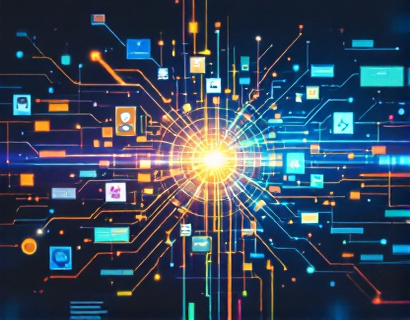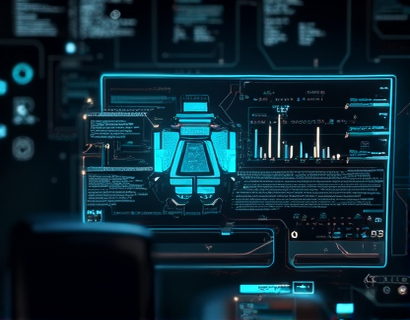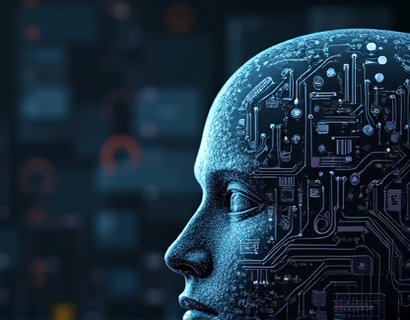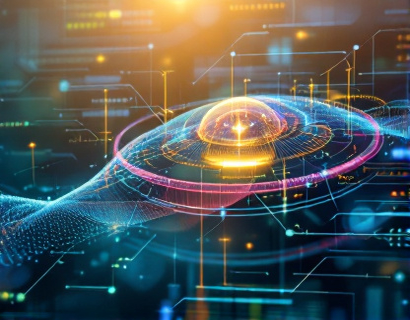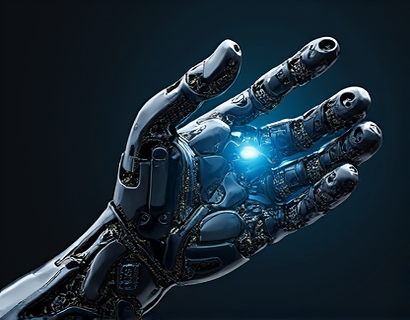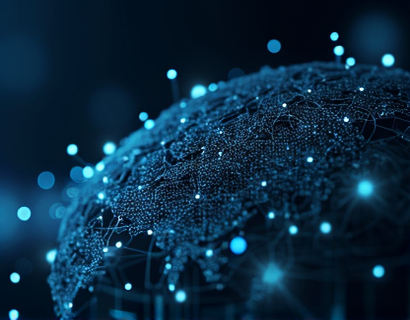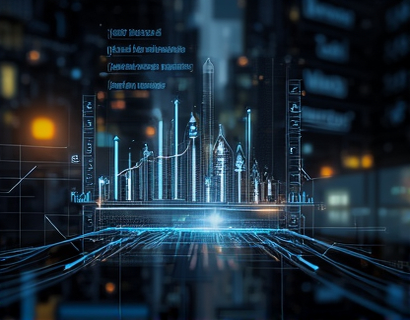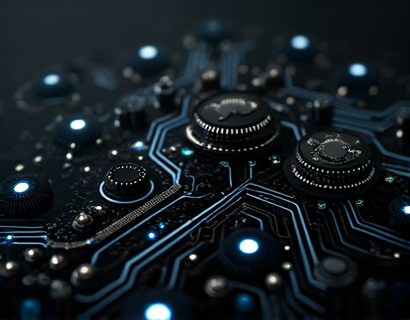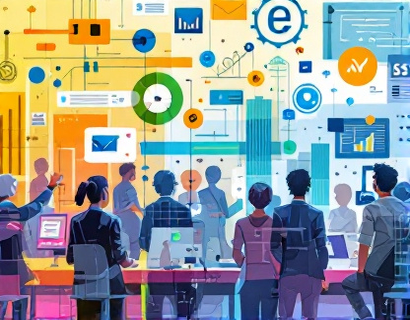Decentralized Productivity: Maximizing Efficiency with AI and Crypto Integration
The integration of artificial intelligence (AI) with cryptocurrency is revolutionizing the way we approach productivity and digital task management. This synergy is giving rise to decentralized solutions that not only enhance efficiency but also redefine the digital landscape. As we delve into this transformative space, it's essential to understand how these technologies, when combined, can simplify and optimize our daily digital activities. This article explores the profound impact of merging AI and cryptocurrency to drive decentralized innovation, offering valuable insights for tech enthusiasts and professionals alike.
The concept of decentralization has been a cornerstone of blockchain technology, which underpins cryptocurrencies. Decentralization refers to the distribution of control and decision-making across a network, eliminating the need for a central authority. This approach not only enhances security and transparency but also fosters innovation by allowing developers to build on a shared, tamper-proof foundation. When AI is integrated into this decentralized framework, the potential for enhanced productivity and streamlined processes becomes immense.
One of the primary ways AI and cryptocurrency intersect is through smart contracts. Smart contracts are self-executing contracts with the terms of the agreement directly written into code. They run on blockchain networks, ensuring that all parties adhere to the agreed-upon terms without the need for intermediaries. AI can optimize smart contracts by analyzing vast amounts of data to predict outcomes, identify potential risks, and suggest improvements. This synergy ensures that contracts are not only secure and transparent but also efficient and adaptive to changing conditions.
Another significant application of AI in decentralized systems is in the realm of decentralized finance (DeFi). DeFi platforms leverage blockchain to provide financial services such as lending, borrowing, and trading without traditional financial intermediaries. AI algorithms can enhance these platforms by providing real-time market analysis, risk assessment, and personalized financial advice. For instance, AI-driven bots can automatically execute trades based on predefined criteria, optimizing returns and minimizing human error. This combination of AI and decentralization in finance not only increases accessibility but also democratizes financial opportunities.
The intersection of AI and cryptocurrency also extends to the development of decentralized applications (dApps). dApps are applications that run on a blockchain network, leveraging its decentralized nature to ensure reliability and security. AI can significantly enhance dApps by enabling them to learn from user interactions, adapt to user preferences, and automate complex tasks. For example, a decentralized social media platform can use AI to curate content based on user interests, manage moderation, and even monetize user-generated content in a fair and transparent manner.
In the context of productivity tools, the integration of AI and cryptocurrency can lead to the creation of decentralized workspaces. These workspaces allow users to collaborate on projects without relying on centralized servers or platforms. AI can facilitate seamless communication, task management, and resource allocation within these decentralized environments. For instance, AI-powered chatbots can handle routine inquiries, schedule meetings, and even assist in project planning, freeing up human users to focus on more strategic tasks.
The use of non-fungible tokens (NFTs) in decentralized productivity is another emerging trend. NFTs are unique digital assets that can represent ownership of specific items, such as files, tools, or even virtual real estate. AI can enhance the utility of NFTs by verifying the authenticity and value of these assets, ensuring that only legitimate and high-quality content is traded. This not only adds a layer of security but also creates new opportunities for creators and users to monetize their digital assets.
Furthermore, the integration of AI and cryptocurrency can revolutionize the way we approach data management and privacy. Decentralized data storage solutions, such as InterPlanetary File System (IPFS), combined with AI, can provide secure and efficient data handling. AI algorithms can optimize data storage by predicting usage patterns, compressing data, and ensuring that only relevant information is stored and accessed. This not only enhances performance but also protects user privacy by minimizing data exposure.
The development of decentralized identity systems is another area where AI and cryptocurrency converge to enhance productivity. Traditional identity verification processes are often centralized, vulnerable to breaches, and cumbersome. AI-driven decentralized identity solutions can provide users with control over their personal data, allowing them to verify their identity securely and efficiently. This not only streamlines authentication processes but also empowers users to manage their digital presence with greater autonomy.
In the realm of content creation and distribution, AI and cryptocurrency can transform the way creators earn from their work. Decentralized platforms can use AI to analyze content popularity, audience engagement, and monetization strategies. This data-driven approach enables creators to optimize their content for maximum reach and revenue. Additionally, cryptocurrency-based payment systems ensure that creators receive fair compensation for their work, eliminating the need for intermediaries and reducing transaction fees.
The educational sector is also poised to benefit from the integration of AI and cryptocurrency. Decentralized learning platforms can use AI to personalize educational content, adapt to individual learning paces, and provide real-time feedback. Cryptocurrency can facilitate micro-payments for educational resources, allowing learners to access high-quality content without financial barriers. This combination not only enhances the learning experience but also promotes educational equity on a global scale.
In the business world, the synergy of AI and cryptocurrency can lead to more transparent and efficient supply chains. Blockchain-based supply chain management systems, enhanced by AI, can track products from origin to destination, ensuring authenticity and quality. AI can analyze supply chain data to predict bottlenecks, optimize logistics, and reduce costs. This not only improves operational efficiency but also builds trust among stakeholders by providing transparent and verifiable information.
The healthcare industry is another sector that stands to gain significantly from the integration of AI and cryptocurrency. Decentralized health records, secured by blockchain, can be enhanced by AI to provide predictive analytics, personalized treatment plans, and efficient patient management. AI can analyze medical data to identify patterns and potential health risks, while cryptocurrency can facilitate secure and private data sharing among healthcare providers. This combination can lead to better patient outcomes and more efficient healthcare delivery.
As we explore the vast potential of AI and cryptocurrency in decentralized productivity, it's clear that the future holds numerous opportunities for innovation and growth. The key lies in fostering a collaborative ecosystem where developers, businesses, and users can leverage these technologies to create more efficient, secure, and user-friendly digital solutions. By embracing this decentralized and AI-driven approach, we can unlock new levels of productivity and redefine the digital experience.
In conclusion, the integration of AI and cryptocurrency is paving the way for a new era of decentralized productivity. From smart contracts and decentralized finance to decentralized applications and data management, the possibilities are vast. As this field continues to evolve, it's essential for tech enthusiasts and professionals to stay informed and engaged, ready to harness the power of these transformative technologies. The future of decentralized productivity is bright, and the journey has just begun.






